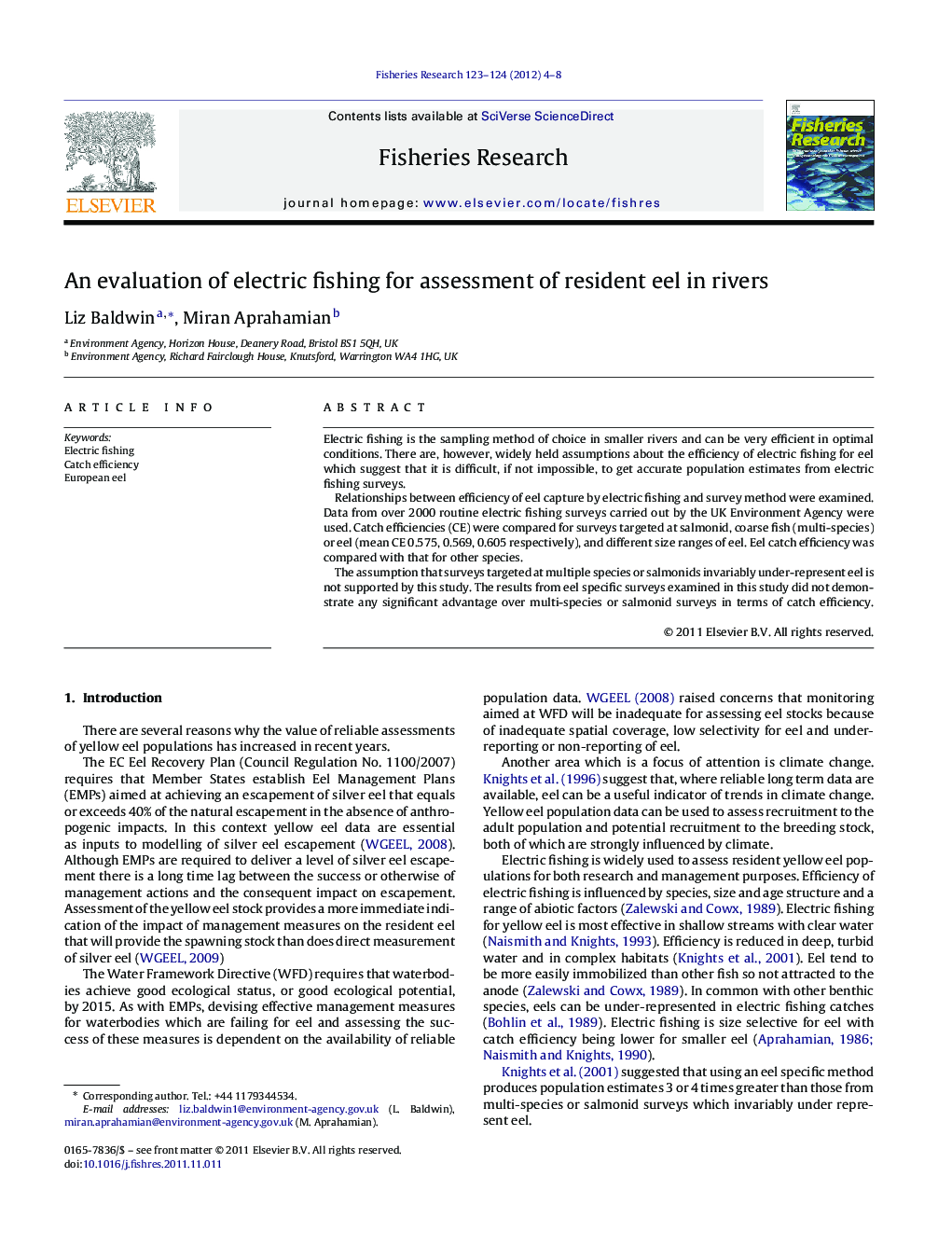| کد مقاله | کد نشریه | سال انتشار | مقاله انگلیسی | نسخه تمام متن |
|---|---|---|---|---|
| 4543444 | 1626837 | 2012 | 5 صفحه PDF | دانلود رایگان |

Electric fishing is the sampling method of choice in smaller rivers and can be very efficient in optimal conditions. There are, however, widely held assumptions about the efficiency of electric fishing for eel which suggest that it is difficult, if not impossible, to get accurate population estimates from electric fishing surveys.Relationships between efficiency of eel capture by electric fishing and survey method were examined. Data from over 2000 routine electric fishing surveys carried out by the UK Environment Agency were used. Catch efficiencies (CE) were compared for surveys targeted at salmonid, coarse fish (multi-species) or eel (mean CE 0.575, 0.569, 0.605 respectively), and different size ranges of eel. Eel catch efficiency was compared with that for other species.The assumption that surveys targeted at multiple species or salmonids invariably under-represent eel is not supported by this study. The results from eel specific surveys examined in this study did not demonstrate any significant advantage over multi-species or salmonid surveys in terms of catch efficiency.
► We examine catch efficiency (CE) of eel in electric fishing surveys.
► We test some assumptions about eel catch efficiency.
► We examine influence of survey target, site width and eel length on CE.
► We found survey target, site width and eel length did not significantly influence catch efficiency.
Journal: Fisheries Research - Volumes 123–124, July 2012, Pages 4–8